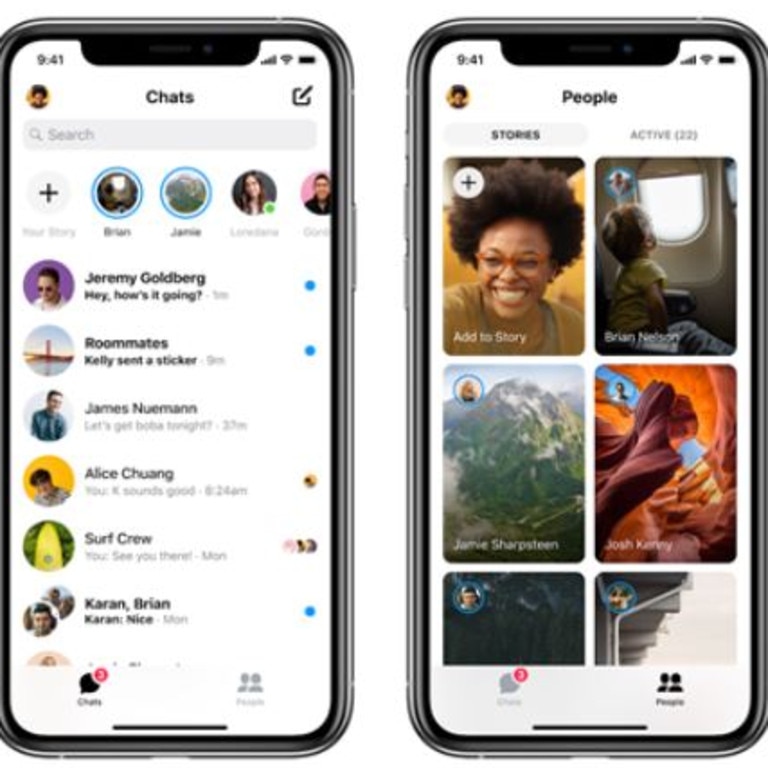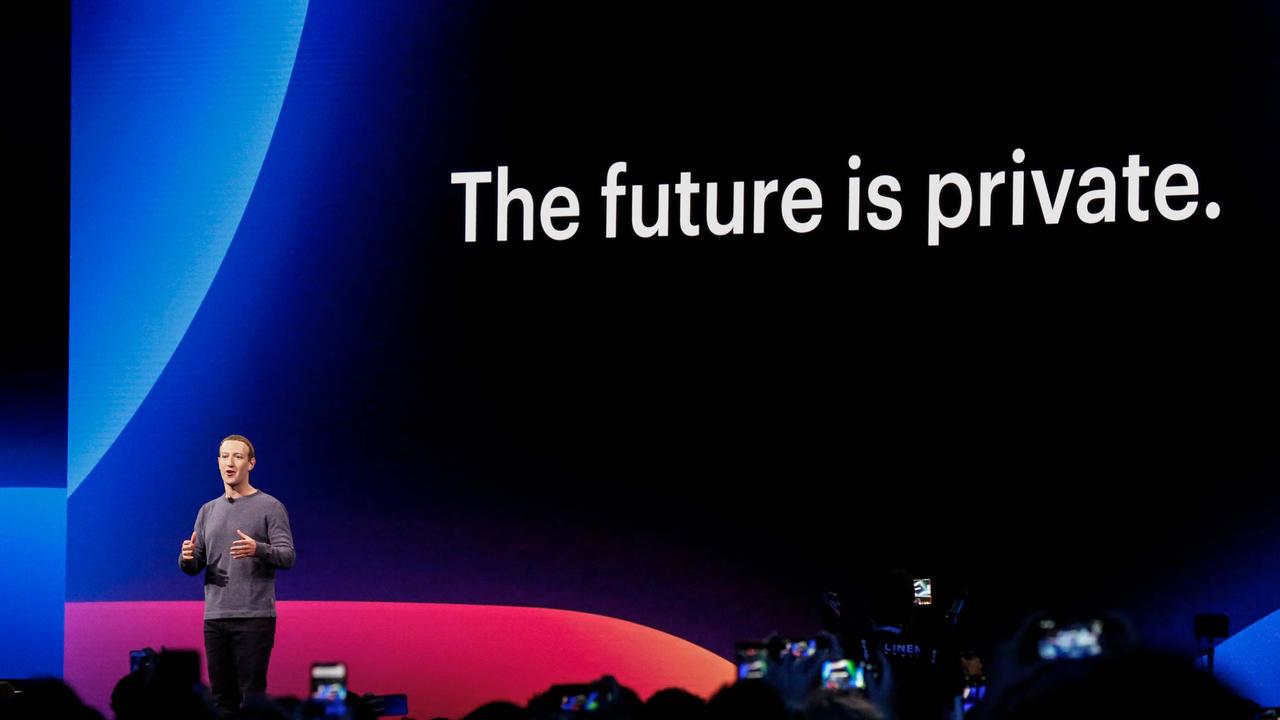Facebook re-engineers Messenger app to run faster, but it will be without some features when it updates
Some Facebook features will disappear after a Messenger update, but the company won’t say which ones or when they’ll return.
The world’s biggest social media platform has changed one of its most important mobile apps to make it run faster as it prepares to integrate messaging across its portfolio.
Facebook, which also owns WhatsApp and Instagram, has redesigned its Messenger app on iOS to make it faster and simpler.
There was already a lightweight version of Messenger, fittingly called Messenger Lite.
That version of the app was primarily designed for customers in developing nations like India, where people can run into trouble running the main app due to less powerful devices and more restrictive data plans.
Messenger Lite doesn’t have as many features as the full version of the app, but App Store reviews suggest many think that’s a good thing.
RELATED: Teen’s prank gets tick of approval
RELATED: Principal’s big win after online attack

RELATED: What you’ll stop seeing on Facebook
RELATED: Reporter’s live on-air mistake
Features like Facebook stories appearing on top of your chat list and ads appearing in your conversations aren’t necessarily ones that people like. Most of the people who download the app are just using it to message their friends and don’t want to see ads in their inbox.
“1.3 billion people around the world spend time on Messenger interacting and conducting commerce with businesses and brands they love,” Facebook said on its website as if that’s the reason people use the app.
Unfortunately for Australian iOS users (the dominant platform here by a margin of about 8 per cent according to StatsCounter GlobalStats), Messenger Lite isn’t available on iOS like it is on Android.
But there is some relief in a forthcoming update to Messenger on iOS.
Facebook has made a smaller and faster version of the app that it claims starts twice as fast, is a quarter of the size and contains 84 per cent less code.
Messenger vice-president of engineering Raymond Endres said speed was an important factor for communication.
“People turn to messaging apps throughout the day to stay in touch with the people they care about so it’s important the app loads quickly and is simple to use,” he said.
Mr Endres also warned “a few features will be temporarily unavailable, but we’re working to bring them back soon”.
He didn’t say which ones.
The change isn’t just about making the app quicker.
Facebook is integrating messaging functions across all its platforms so they can all work together.
RELATED: ‘Irrelevant’ star slammed by supermodel
RELATED: Backlash to ‘disappointing’ bank ad

RELATED: 15,000 reasons Facebook fails
RELATED: Video that made teen quit school
Facebook founder and CEO Mark Zuckerberg outlined his vision for messaging at the start of last year.
The focus will be on interoperability for the billions of users on the different apps, with end-to-end encryption and, of course, a fashionable focus on privacy.
It could actually be counterintuitive on the privacy front when it comes to data sharing between apps that require different levels of personal information to make an account.
WhatsApp only asks for your phone number, while Facebook has much more information on you if you’ve been using it for the past decade that it’s been widely popular.
We’re yet to see how the interoperability between apps and encryption will actually work, and Facebook’s implementation could still be several years away.
There are already plenty of other messaging options that offer encryption for those who wish to use them.
The problem, and Facebook’s distinct advantage in this arena, is getting everyone you want to message to use them too.



